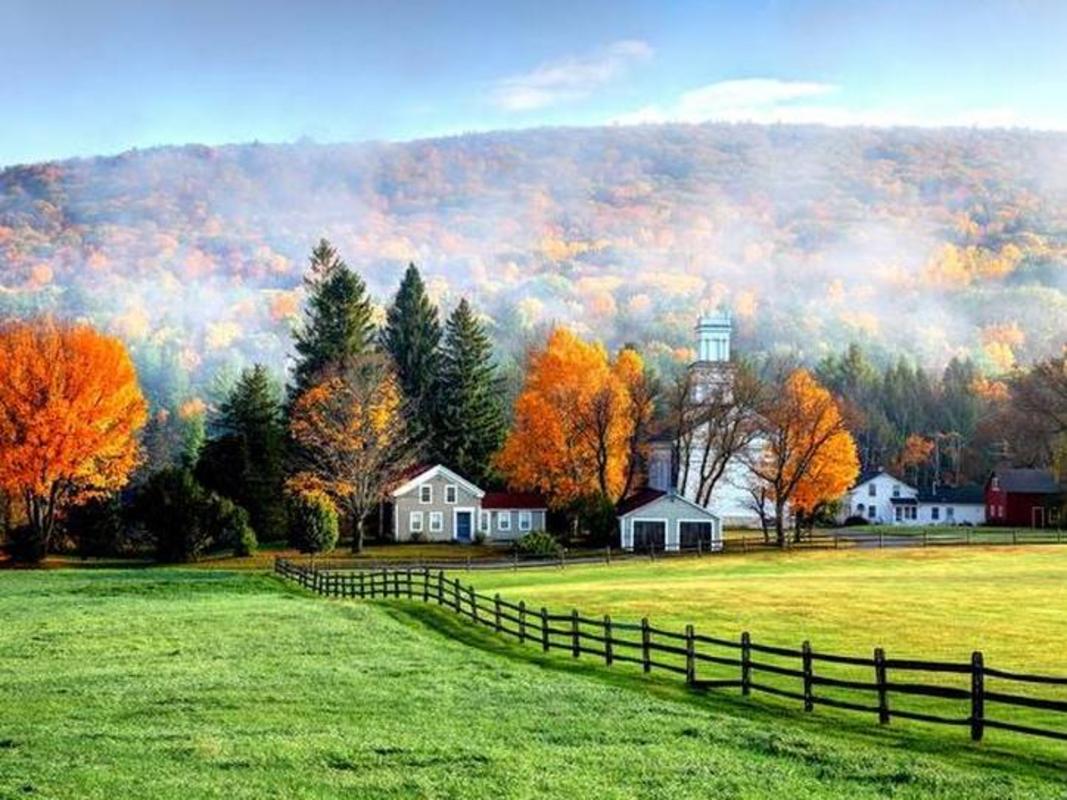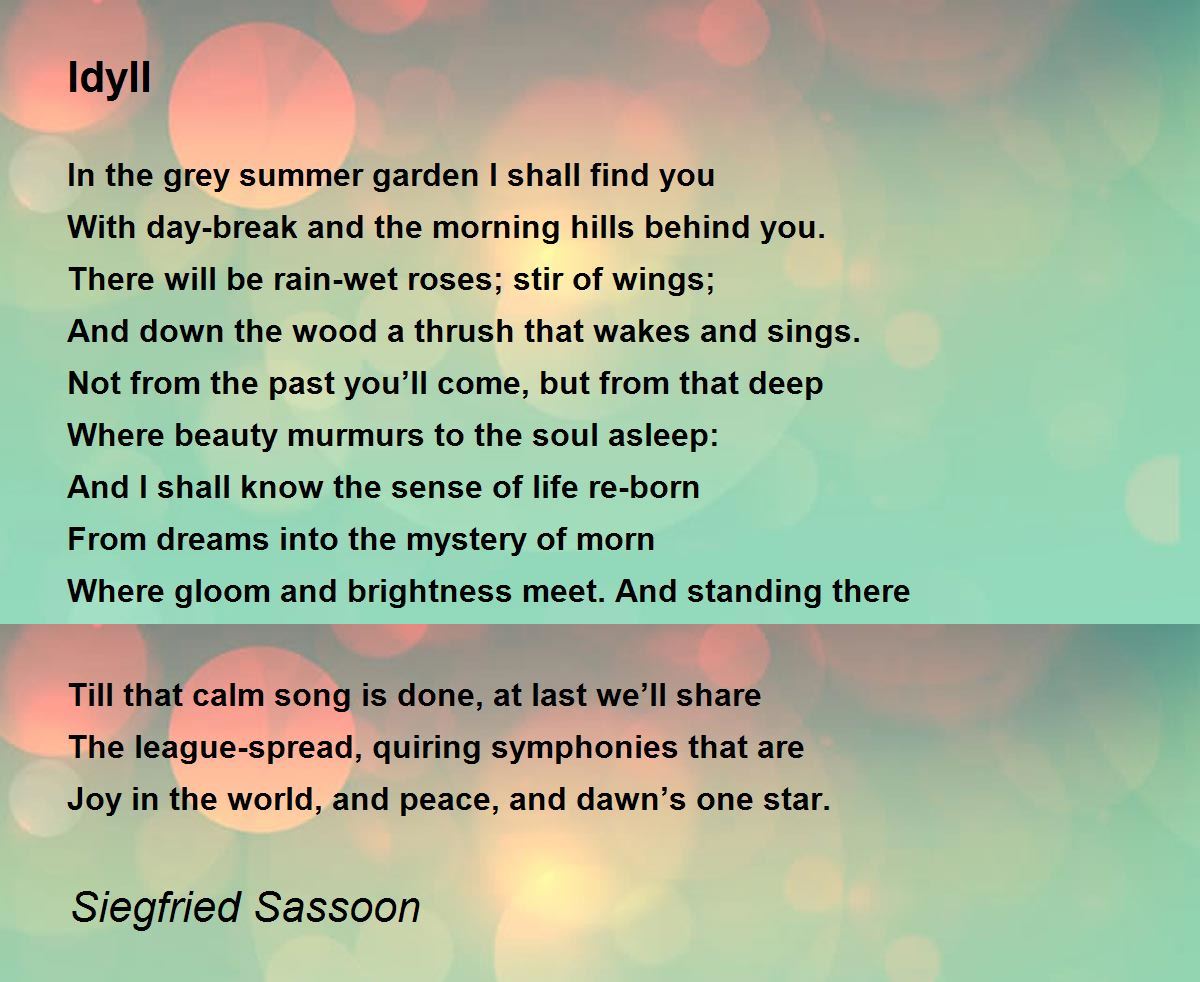
JAKARTA, inca.ac.id – Idyll: The Pastoral Life Idealized in Poetry — It’s a phrase that sounds so fancy, right? Let me tell you, my first encounter with “idylls” was at a super boring literature class in high school. Picture this: everyone slouched on their desks while the teacher droned on about shepherds, golden fields, and dreamy sunsets. I was like, “Who even lives like that?” But, you know what? Once I actually paid attention (probably way later than I should’ve), I realized the concept of idyll—this romanticizing of the chill, country life—totally speaks to a deeper human need we all have: escape.
What Exactly IS an Idyll?

Alright, let’s break it down, because I know it can sound like outdated literary mumbo jumbo. An “idyll” is basically a short, descriptive poem (sometimes prose, but, let’s be honest, poetry’s where it shines!) that paints a super idealized version of rustic, pastoral life. Think: lush meadows, carefree shepherds, peaceful streams, and NOT a single email ping or traffic jam in sight.
Some of the most famous examples? Theocritus (yeah, that’s a real name) kicked off the trend in ancient Greece. Then you get to Virgil, whose “Eclogues” are literally the OG vibes. Shakespeare even dipped his quill in the genre now and then. It’s all about picturing country life as this perfect, almost utopian existence. Total fantasy land—but a soothing one, you know?
Confessions of an Urbanite Who Tried Going “Idyllic”
I grew up in the city—a Jakarta resident through and through. Motorbikes roaring past, 24/7 noise, Gojek drivers everywhere. So…I used to wonder why poets obsessed over farms and sheep. But, one holiday, I actually went to a super remote village in Solo. Let me tell you, the quiet was wild. There was something magical about waking up with birds singing instead of traffic honks.
For two glorious days, I felt a bit like those poetic shepherds (minus the sheep). I even wrote a cringe-y attempt at an idyll-style poem (it’s hiding somewhere on my old phone—NO, you cannot see it). Lesson learned? Living even a hint of that life made me realize why poets are obsessed with the countryside: It’s not just about fields and cows, but that feeling of inner peace.
Why Are We So Obsessed with Idealized Pastoral Life?
This was honestly a huge “aha!” moment in my whole poetry journey. If you really think about it, the obsession with the idyllic is probably our universal allergy to stress. Technology’s dope and all, but sometimes, don’t you just want to unplug? I think poets captured that urge centuries before #DigitalDetox was even a thing.
Here’s a cool stat I stumbled on: according to a 2022 Pew Research study, 64% of people globally say being in nature reduces anxiety and boosts their mood. That’s not just “poetic nonsense”—it’s actually scientific Knowledge in action! Maybe these old-school poets were onto something, yeah?
Common Mistakes When Chasing the Idyll—And My Tips
1. Assuming Real Country Life = Poetic Fantasy
I made this rookie mistake HARD. Thinking, “Oh, I’ll read Virgil and suddenly love farming.” Reality check: real farm life can also mean a LOT of mud and not-so-glamorous chores. My tip? Don’t romanticize too much. Enjoy the feeling, sure, but be grounded in reality.
2. Forcing the Mood When Writing
When I first tried writing my idyll, I thought I needed to find the “perfect moment.” Truth: inspiration often shows up after you actually start. Just sketch something, even if it’s rough. Edit later. Leave perfection to, well, the fictional countryside.
3. Ignoring Modern Connections
I used to think idylls were just for old stories. But, if you keep it relevant, your poem (or even your daydreams) can tap into modern problems like burnout or anxiety. Combine nature with your own life story. Your perspective is what matters.
Real-Life Modern Twists on the Idyll
I love finding ways to bring old-school poetry themes into my own world. How do I add a bit of “idyll” in daily Jakarta chaos? Small wins: a walk through Taman Suropati during lunch, enjoying a cup of kopi on my kosan’s tiny balcony, or just noticing trees swaying while stuck in macet.
One time, a friend of mine held an “urban picnic” in his rooftop garden. We read out poems about city dreams mixed with little nods to green spaces. Who says you can’t have a pastoral moment, even if you’re in the city? It’s honestly the vibe and your mindset that make it idyllic, not the postcard setting.
How to Write Your Own Idyll (Even If You Don’t Like Poetry)
This is where it gets cool and practical—because literally anyone can do it. Three easy steps:
- Step 1: Spot Your Peaceful Place. Even if it’s just a memory. Maybe it’s your grandma’s garden, your favorite park bench, or a dream vacation. Doesn’t have to be “perfect.” Just somewhere you felt chill.
- Step 2: Zoom in on Sensory Details. What does it smell like? How’s the light? Are the birds going nuts, or is it oddly quiet?
- Step 3: Let Go of Expectations. Write a short, messy note—forget rhymes, just describe what you see and feel. If you want to level up, try shaping it as a short poem later. But honestly, just getting it down is what matters.
And remember: everyone’s idyll will look different. That’s the beauty of it. Don’t compare yours to, say, Wordsworth’s swan-filled lakes. Your city park could totally be just as poetic—trust me!
Wrap-up: Why Pastoral Poems Still Matter Today
Look, I’ll be real: I probably spend more hours on Instagram than I do wandering fields. But every time I get overwhelmed, I find myself wishing for a simpler place and time. That’s why the idea of the idyll—pastoral life in poetry—keeps coming back no matter how modern we get.
Takeaways? Don’t beat yourself up if you crave a slower rhythm. Let those old poets inspire you, but update it for your life now. City kid, country kid, or something in between—you can always claim your own “idyll.” All it takes is getting intentional about spotting—and creating—your pockets of peace!
So, next time you see a grassy patch or just daydream about “the good life,” remember: you’re channeling a timeless poetic tradition. And hey, maybe even try scribbling your own modern idyll. Who knows? You might surprise yourself!
Explore More Articles in the Knowledge Category: Knowledge
Also Read about Safety Knowledge
#creative writing #cultural history #Idyll #inspiration #Literature #nature #pastoral life #poetry







